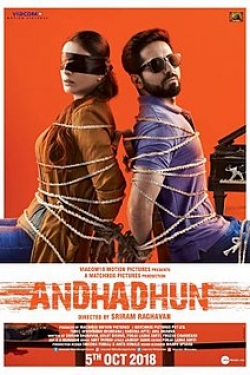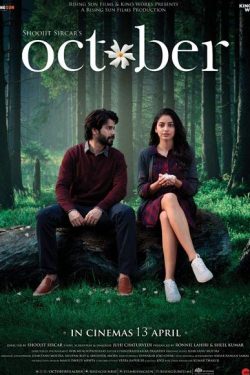Top Rated Films
Raja Sen's Film Reviews
-
…the story of a poor man and God has been turned into the story of a poor man and a movie star. I’m not denying it accuracy, for in this world without towering figures in politics and sports, the stars are the ones who bestow the nation with wonderment — it’s just as valid as America now calling superheroes the new Greek Gods. And while the analogy may be correct — and no offense to Mr Khan — isn’t it at least a little disturbing?
-
The first half of the film seems somewhat alright, though I’d love an explanation on how a woman besotted with a certain man not just imagines him on screen in a romantic medley, but sees him dance with a string of Bollywood heroines instead of herself. The second half of the film sees a lot of the aforementioned Rab-invoking, with much talk of divinity and love. And as you yawn through the last half hour — wherein lies the Rab — you realise that the entire makeover device, which masquerades as the plot of the film, was completely unnecessary, and all the hero needed to do was take her to the temple a few more times. And a redundant plot is as unforgivable as it gets.
-
…after very gratefully handing it four and a half stars, in case you asked — that this is a movie to love. And one that makes the audience feel just like the hero: really, really lucky.
-
Bachna Ae Haseeno is well shot, competently performed and the writing shows glimpses of honest-to-goodness subtext and intelligent character development. It’s also a film centering around a lead actor, showing off just how much of ‘it’ he has — and he has more than a fair amount. If only the second half wasn’t as predictable as it is, the film was an hour shorter and every one-liner wasn’t accompanied by a burst of background score acting like a laugh track, we could have had a really good film.
-
Taare Zameen Par is, above all else, an earnest film.
Aamir brings us the debut of both a great child actor and a budding director with a fine eye, though he seems slightly Ashutosh’d in terms of pace. Economy is the one thing this film cries out for. Crisper, tighter, and less repetitive, and we’d have a very good movie on our hands. For now, we have a director with clear potential for solid work. And we need as many of those as we can get.
-
The problem lies with their puppeteer, the all-conquering badshah of bluster. Sanjay Leela Bhansali [Images] takes Fyodor Dostoevsky’s White Nights — a stark, lovely story about romance born and rekindled over four nights — and, picking out its barest heart, proceeds to smother it in mixed-up layers of trite melodrama. And money. And so this soft core, this tender tale, is hidden — under several reams of indiscriminately wrapped silk and velvet, of loud noise and harsh light, of bewildering backdrops and the colour blue — so deep beneath smug self-indulgence and a bizarre budget that you can’t even hear the heartbeat anymore.
-
Om Shanti Om is an exultant, heady, joyous film reveling in Bollywood, and as at most parties where the bubbly flows free, there is much silly giggling and tremendous immaturity. You’d do well do breathe in the filmi fumes, lift your own collar-tips upwards, and leave sense out of the equation. More cameos are written in than dialogues, so sit back and play spot-the-celeb. Or watch the Khan have a blast on screen.
-
Sure, you know what’s going to happen, but it’s a good ride — and especially satisfying to see Swiss flower-fields replaced by Australian stadiums. Not to mention the return of the King.
-
It’s always tragic when young directors start off their careers with scripts originating out of foreign DVDs. It’s not a smart move, inviting comparison and critical condescension, while just trying to make a movie they assume few have seen.
Still, go. Despite everything, see this film. Watch it for Vinay.
-
A tense romantic drama between two married couples — and the most compelling character in the film is a dad who dresses like a pimp? The film is working from a fundamentally flawed script, and our four (okay, two) main leads aren’t really fleshed out at all. Khan is perpetually pissed, an angry man too busy grumbling about his limp to care about his marriage. Mukerji’s character is strangely unreceptive of Abhishek’s advances. Preity’s Rhea echoes Bollywood cliché of careerwomen being ruthless and uncaring. Abhi, while a bit of an upstart, is the most believably written of the bunch. But never once do you feel concern for any of them, nice New York cinematography or not.

























